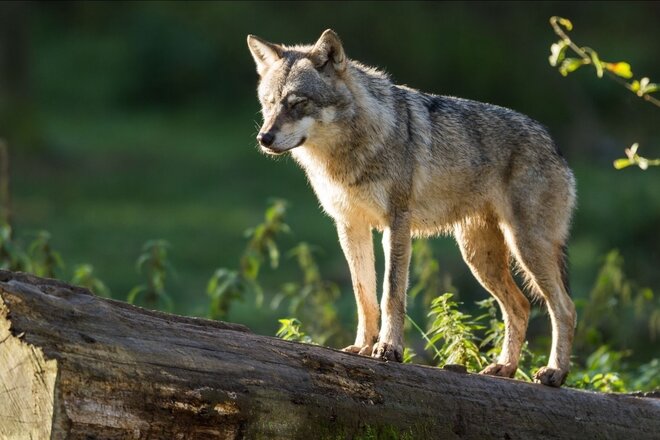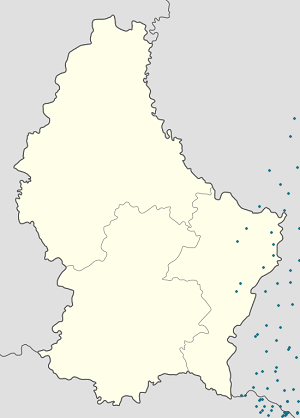295 signatures
Petitioner did not submit the petition.
Petition is addressed to: Chambre des députés
We call upon the Luxembourg government to:
- to work towards ensuring that the wolf continues to be protected throughout Europe and that the shooting of individual animals is only possible in well-founded individual cases;
- to work to increase knowledge about the wolf and other so-called large carnivores and their role within ecosystems;
- together with the other member states of the EU, to work out proposals how the coexistence between humans and animals can be better organized and to stand up categorically against any further destruction of the natural habitats of wild animals;
- also, in Luxembourg, to take measures that guarantee a better protection of wild animals and their natural habitats.
- The fragmentation of the landscape and, consequently, of the natural habitat of plants and animals must stop. The so-called ecological compensation measures must no longer be used as a cheap excuse for the destruction of nature by useless large-scale projects and infrastructure measures.
- To work out concrete proposals on how to strengthen the connection between the different nature parks and nature reserves. The development of leisure activities and tourism must not be at the expense of nature.
- To consider a total ban on hunting in Luxembourg's nature parks and nature reserves;
- to develop and support activities that contribute to a better understanding of the functioning of our ecosystems.
We call on the Luxembourgish MEPs to campaign consistently for the protection of wolves, species protection and the preservation of our ecosystems in Brussels.
Reason
Towards the end of the 19th century, the wolf had been completely eradicated in Luxembourg as well as in most other Western European countries. A few decades ago, the first wolves moved from Eastern Europe westwards where they settled down whenever they found suitable conditions.
After the wolf was first protected, in 1979, along with a few hundred other animal and plant species, by the so-called Bern Convention, the Convention on the Conservation of European Wildlife and Natural Habitats of the Council of Europe, it was also protected, in 1992, under the so-called Habitats Directive of the EU. As a result, it is considered as an animal species whose conservation is in the very interest of the EU and may only be shot under very strict conditions. In June 2020, the European Court of Justice confirmed in a decree that the protection of the wolf is not limited to its natural habitats, but also applies to wolves that have left these habitats to find themselves in human settlement areas.[1]
According to the "Large carnivore initiative for Europe", there are about 17,000 wolves in Europe today, with most wolves continuing to live in eastern and southeastern Europe. In addition, there are larger groups of wolves elsewhere, especially in the Alps and in the north of the Iberian Peninsula. Ten years ago, the first wolves were also sighted in the surroundings of Luxembourg. However, these were exclusively individuals of whom one can assume that they were on the move and not consolidated packs.[2]
Although the range of the wolf has greatly increased in recent years, this has been particularly the case in those countries where the wolf was previously extinct or nearly extinct, and it would be wrong to assume that the presence of the wolf is now assured throughout Europe. Human activities, especially extreme urban sprawl in our areas, hinder the spread of the wolf and the formation of packs.
Nevertheless, the resistance against the wolf is growing in many parts of Europe. It is fed by a mixture of real-life incidents, especially attacks on herds, and an entrenched fear of the "bad wolf.” In late August, the president of the European Commission Ursula von der Leyen called on member states to take advantage of derogations provided for in the Habitats Directive and to submit an inventory of the wolf population and its impact.[3] This is in response to a November 2022 European Parliament resolution aimed at questioning the wolf's protected status and making it easier to hunt.[4]
When, in 2017, the first clear evidence of the presence of a wolf in Luxembourg was found, an action plan was immediately conjured up. Even if it is certainly justified to compensate breeders for wolf depredations, - most depredations, both of wild and of domestic animals being still caused by errant dogs - , or to finance preventive measures, this leaves a bad taste: Hardly has it arrived, the wolf is again perceived as a problem!
Wolves, bears, lynxes, foxes, wild boars, red deer or ravens: Wherever man encounters wildlife or vice-versa, problems arise. Although it is certain that the ecological balance has been upset, and this was done by human intervention, it is not legitimate to shoot wild animals that are reclaiming their natural habitat or simply try to find a place in our "civilized" world. Especially in the case of the so-called predators, which have always been considered as a competition to human hunters and gatherers, the boundaries between seemingly legitimate regulation and renewed extermination are fluid. Yet examples, such as those from Yellowstone National Park, prove that the presence of wolves can have a positive impact on biodiversity by preventing, for instance, overpopulation of even-toed ungulates such as buffalos and wapitis and overgrazing by them/ In many cases, wolves can also be considered as an "umbrella species": the protection of their natural habitat benefits a whole range of other animal and plant species.
-------------------------------
[1] Judgment of the Court (Second Chamber) of 11 June 2020, Asociatia “Alianta pentu combaterea abuturilor c TM ab Others”; https://curia.europa.eu/juris/liste.jsf?num=C-88/19)
[2] LCIE: Wolf - Canis lupus: Wolf facts, https://www.lcie.org/Largecarnivores/Wolf.aspx
[3] European Commission : Wolves in Europe: Commission urges local authorities to make full use of existing derogations and collects data for conservation status review, 4 September 2023, https://ec.europa.eu/commission/presscorner/detail/fr/ip_23_4330)
[4] European Parliament: European Parliament resolution of 24 November 2022 on the protection of livestock farming and large carnivores in Europe (2022/2952(RSP)), https://www.europarl.europa.eu/doceo/document/TA-9-2022-0423_EN.html
Share petition
Petition details
Petition started:
09/17/2023
Petition ends:
12/15/2023
Region:
Luxembourg
Topic:
Environment
This petition has been translated into the following languages
News
-
Petition wurde nicht eingereicht
7 days agoLiebe Unterstützende,
der Petent oder die Petentin hat innerhalb der letzten 12 Monate nach Ende der Unterschriftensammlung keine Neuigkeiten erstellt und den Status nicht geändert. openPetition geht davon aus, dass die Petition nicht eingereicht oder übergeben wurde.
Wir bedanken uns herzlich für Ihr Engagement und die Unterstützung,
Ihr openPetition-Team
Debate
No CONTRA argument yet.




